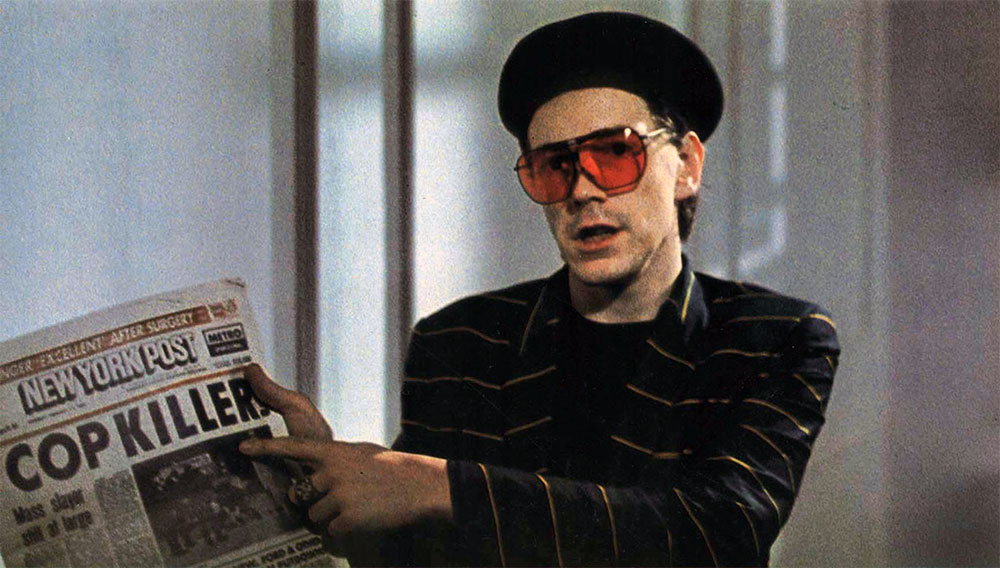No national cinema has been as frank in its depiction of fascism’s sexual dimension as Italian cinema. In the decades after Benito Mussolini’s execution, directors like Roberto Rosselini, Bernardo Bertolucci, and Pier Paolo Pasolini foregrounded sexual violence and repression in their reckonings with the nation’s fascist regime and its afterlives. Given that mainstream genre filmmakers in the United States were reticent to include explicit political criticism of the state in their screenplays, it's perhaps no surprise that one of the most unambiguously fascistic depictions of an American police force in a genre film comes from the Italian filmmaker Roberto Faenza’s disarmingly kinky thriller Copkiller (1983).
Based on The Order of Death, a 1977 novel by the English writer Hugh Fleetwood, Faenza’s film stars Harvey Keitel as Fred O’Connor, a corrupt NYPD narcotics detective. While O’Connor and his partner (spaghetti western veteran Leonard Mann) spend their free time in a cavernous apartment overlooking Central Park (purchased with their ill-begotten gains), fellow drug squad members are picked off one-by-one by a masked killer armed with a serrated bread knife. Unbeknownst to O’Connor, a strange, waifish English punk named Leo (John Lydon) is aware of his secret apartment, and soon confronts him there to identify himself, perhaps falsely, as the titular murderer.
Leo’s motivations, which are laid bare in the aftermath of their encounter, are murky and manifold. An orphaned child of privilege living at his grandmother’s estate in the Hudson Valley, he craves punishment for his unearned riches. O’Connor, a macho reactionary who complains that the press is “so compassionate for everything sick and weak and degenerate,” is all too happy to mete it out. He promptly locks Leo in his bathroom, beats him viciously, and feeds him out of a dog bowl. But Leo, not content with masochism alone, wants to see his captor face consequences of his own. Like the pairs in better known psychodramas like The Servant (1963) and Deep End (1970), Leo and O’Connor’s power dynamic shifts mercurially over the course of the film.
Upon release, Copkiller was retitled “Corrupt” in the US and “The Order of Death” in the United Kingdom. After the cult success of Abel Ferrara’s Bad Lieutenant (1992), also starring Keitel in the lead role, some home video labels released Copkiller, which had fallen into the public domain, under the name “Corrupt Lieutenant.” None of these rebrandings have succeeded in launching Faenza’s film to cult status. Confrontational in both its homoeroticism and its anti-fascism, Copkiller has struggled to find a foothold in the annals of sleazy cinema where it proudly belongs.
Copkiller screens tonight, April 25, at Anthology Film Archives as part of the series “Narrow Rooms.”



